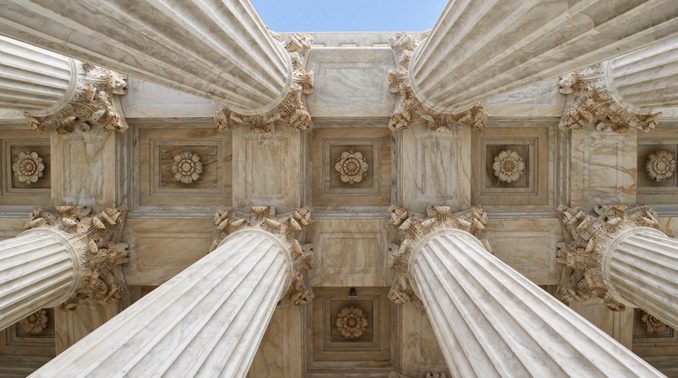
On June 27th, the final day of its 2024-25 term, the Supreme Court handed down one of its most significant rulings ever in favor of parents’ rights to direct the educational upbringing of their children.
In Mahmoud v. Taylor, a dispute from Montgomery County, MD, the Court reasoned that denying an interfaith coalition of Muslim, Ethiopian Orthodox Christian, and Catholic parents the opportunity to opt their pre-school and elementary-age school children out of instruction using storybooks discussing “gay pride” parades, gender transitions, and pronoun preferences or inform them about their perceived sexual orientations violated their First Amendment right to the free exercise of religion.
After lower courts rejected the parental claims, as anticipated based on the oral arguments, the Supreme Court, in a six-to-three opinion, reversed in their favor.
Mahmoud v. Taylor
Controversy began early in the 2022-23 school year when the Montgomery County school board added more than 22 storybooks with LGBTQ+ themes to its English language-arts curriculum, promoting transgender ideology and encouraging gender transitioning. Among the materials the parents challenged is Pride Puppy!, the sole text expressly approved for use with three- and four-year-olds in pre-K and Head Start classes. The book depicts a family whose puppy gets lost at a LGBTQ+-pride parade, while devoting a page to each letter of the alphabet in celebrating Pride Day. A related assignment directed children to locate such words as “[drag] queen” and “king,” “leather,” “lip ring,” and “intersex”.
Other disputed books “include stories about a same-sex marriage, a transgender child’s rainbow-colored wig, and elementary school students replacing girl/boy bathroom markers with non-binary signs.”
After educators initially agreed to provide parents with advanced notice and allow opt-outs from instruction using the book on family life and sexuality, they changed their minds a day later and refused to do. The federal trial court in Maryland and a divided Fourth Circuit the parental claims. The courts largely agreed that officials did not violate the parents’ free exercise rights or undermine the values they sought to instill in their children by denying them the opportunity to opt their young out of the instruction they found objectionable.
Supreme Court Majority Opinion
In a stunning six-to three opinion, authored by Justice Alito, and joined by Chief Justice Robets along with Thomas, Gorsuch, Kavanaugh, and Barrett, the Supreme Court reasoned that because officials in Montgomery County failed to grant parental requests to opt their children out of instruction inconsistent with their beliefs, officials violated their First Amendment right to the free exercise of religion.
Near the beginning of his opinion, Alito explained that “we hold that the parents have shown that they are entitled to a preliminary injunction. A government burdens the religious exercise of parents when it requires them to submit their children to instruction that poses ‘a very real threat of undermining’ the religious beliefs and practices that the parents wish to instill.”
Disagreeing with the dissent’s characterization of the materials, Justice Alto emphasized that “[a]s we have explained, the storybooks unmistakably convey a particular viewpoint about same-sex marriage and gender. And the Board has specifically encouraged teachers to reinforce this viewpoint and to reprimand any children who disagree. That goes far beyond mere ‘exposure.’”
Reviewing the actions of Mongomery County officials, Justice Alito applied strict scrutiny, the highest level of review under which state actions limiting fundamental rights such as the free exercise of religion “the government must demonstrate that ‘its course was justified by a compelling state interest and was narrowly tailored in pursuit of that interest.’”
When the courts apply strict scrutiny to government restrictions, they typically reject them unless they are sufficiently narrowly tailed to achieve a compelling governmental interest, something officials in Montgomery County were unable to do.
Rounding out the opinion of the Court, Justice Alito wrote that “[t]he Board’s introduction of the ‘LGBTQ+-inclusive’ storybooks, along with its decision to withhold opt outs, places an unconstitutional burden on the parents’ rights to the free exercise of their religion.”
He thereby reversed and remanded in favor of the parents on the basis that they are likely to prevail on the merits of their claim that the board’s refusal to allow them to opt their children out of the instruction with which they disagree violated their First Amendment rights to the free exercise of religion.
Justice Thomas agreed with the opinion of the Court but stated, “I write separately to highlight additional reasons why the Board’s policy cannot survive constitutional scrutiny, as well as to emphasize an important implication of this decision for schools across the country.”
Justice Sotomayor’s dissent
In a dissent that was almost as long as the Court’s judgment, Justice Sotomayor, joined by Justice Kagan and Brown, expressed her fear that “[t]he result will be chaos for this nation’s public schools. Requiring schools to provide advance notice and the chance to opt out of every lesson plan or story time that might implicate a parent’s religious beliefs will impose impossible administrative burdens on schools.”
Further, ignoring the extent to which board officials violated parental rights, she argued that “’[s]imply being exposed to beliefs contrary to your own’ does not amount to prohibiting the free exercise of religion.”
Significance of the ruling
Mahmoud stands out as the Court’s most significant case protecting parental rights to direct the religious upbringing of their children since 1925’s Pierce v. Society of Sisters of the Holy Name of Jesus and Mary. In Pierce, while upholding the rights of non-public schools to operate, the Justices pointed out that “[t]he child is not the mere creature of the state; those who nurture him and direct his destiny have the right, coupled with the high duty, to recognize and prepare him for additional obligations.”
Mahmoud is a much-welcomed and needed corrective in the ongoing battle I have chronicled in Catholic World Report, as courts continued to ignore Pierce’s having defined and protected the primacy of parental rights. Notably, Mahmoud sets a new direction as it forbids public school officials from imposing their politically correct views du jour on unsuspecting, malleable, captive audiences of young students who are unprepared intellectually and emotionally when exposed to explicit sexuality instruction in early primary school, especially when such subject matter conflicts with the religious beliefs and values of their parents.
Highlighting their importance in the lives of their offspring, Justice Alito aptly acknowledged, in language worth quoting in full, that “the right of parents to direct the religious upbringing of their children would be an empty promise if it did not follow those children into the public school classroom. We have thus recognized limits on the government’s ability to interfere with a student’s religious upbringing in a public school setting.”
This essentially turns back fifty years of indifference, especially the ignoring of Pierce’s clear declaration concerning who has the ultimate right to direct the education of children. It places limits on what has become “an imperial Judiciary” that has empowered school officials to run roughshod over parental rights. While not suggesting that parents should be granted the ability to micromanage the content of school curricula via the “heckler’s veto,” educators must be more respectful of their rights as primary caregivers of their children.
Yet, as reflected by the lower court orders in Mahmoud, jurists supporting activist educators have “taken sides in the culture war, departing from its role of assuring, as neutral observer, that the democratic rules of engagement are observed.” As such, Mahmod has now restored some equilibrium as it allows parents greater say in ensuring that public school officials provide balanced, age-appropriate instruction on matters going to the heart of the parental right to form the religious and educational beliefs of their children.
If you value the news and views Catholic World Report provides, please consider donating to support our efforts. Your contribution will help us continue to make CWR available to all readers worldwide for free, without a subscription. Thank you for your generosity!
Click here for more information on donating to CWR. Click here to sign up for our newsletter.











